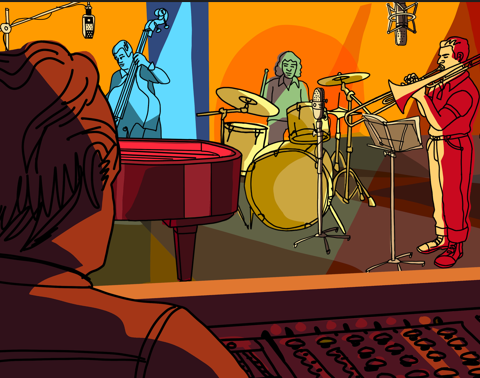Chavela
(USA/Mexico/Spain, 93 min.)
Dir. Catherine Gund, Daresha Kyi
“My name is Chavela Vargas,” says the titular subject in on the opening of this documentary. “Don’t you forget it.”
While fans might know the singer as “La Senora,” “Chile Verde,” “The Rough Voice of Tenderness,” or, more likely, simply on a first name basis, non-Hispanic audiences might be hearing Chavela’s name for the first name. However, they’ve almost certainly heard her music, perhaps on the soundtracks for films such as Julie Taymor’s Frida, Alejandro González Iñárritu’s Babel, or any number of films by Pedro Almodóvar, including his most recent work, the Alice Munro adaptation Julieta. You will probably recognize some tunes while watching the wonderful documentary Chavela. Even if the words are new, you’ve certainly experienced the feeling behind them before.
This respectful and glowing portrait of Vargas charts the journey of the Costa Rican born icon who captured the hearts of Hispanic audiences with her forcefully crooned “rancheras.” Chavela features ample footage of the singer performing her poignant ballads in her signature pants and poncho, while interviews with the star and her closest friends illuminate the life and significance of the iconoclast who moved audiences with her songs.
Much of Vargas’ story comes from an interview with the singer that director Catherine Gund shot in 1992. The lo-fi video images of these interview scenes add to Vargas’ legacy: here’s a woman who stands the test of time. Vargas’ testimony appears interspersed with recent interviews of her close friends. The film recounts Vargas’ journey from Costa Rica to Mexico to escape a troubled family. She discovers in the land of tequila and tacos a fine energy and the lust for life that she craves.
Vargas’ story has elements of the familiar. An outsider doesn’t feel comfortable at home. Her parents hide her and are wary of the way she dresses. She’s an outcast in church. Cut to the hustle bustle of the Mexican metropolis, however, and it becomes a tale of rebirth. Vargas thrives in an environment where she can be merry and gay.
Well, she could be gay to an extent, since the stories we hear in the film tell of a deeply contradictory society in which one could behave a certain way on stage, but not continue the act when the show was over. Chavela unpacks the significance of Vargas’ performance style and onstage comportment. Archival images contrast the singer with other ranchera crooners who wagged their hips in hoopy skirts and frilly blouses while Vargas left mouths agape by wearing pants and a poncho. Very unladylike, the film tells, for the 1950s. Her story and popularity are quite notable and the film only really hammers home the significance of Vargas’ trailblazing style by the end when it reveals that she didn’t come out publicly until she was 81.
Chavela dabbles in the stories of Vargas’ many affairs that she enjoyed in open secret. The rumours cite big names ranging from painter Frida Kahlo to actress Ava Gardner, while the filmmakers track down a number of the women in Vargas’ life who shared intimate moments with her and were privileged to share her journey and struggles. The film notes a turbulent relationship between Vargas and the tequila bottle with stories of rivers practically run dry by her binge-drinking and relationships all but destroyed by out-of-control behaviour, like letting a lovers’ child play with a gun.
Chavela, as with many warts and all biographies, finds an act of redemption in Vargas’ decision to overcome her alcoholism and choose life and love over booze-fuelled escapism. The film sees her on a comeback touring venues bigger than she ever imagined as she finds success in Europe and more fans that love her just as much as she loves them.
Audio snippets and concert footage show Vargas performing songs of loss and heartache. Her dryly-cadenced vibrato gives a sense of a heart parched for love. Lyrics of the songs, mostly written by José Alfredo Jiménez, appear on screen in whispering subtitles that could easily be captions for Vargas’ life story. “Chavela lived in a continual state of farewell,” says director Pedro Almodóvar in the film. Vargas’ biography, like her music, is awfully melancholy. But it’s also told so sincerely and beautifully that one feels joy and admiration in lieu of sadness.
Chavela opens in Toronto at the Hot Docs Ted Rogers Cinema on Dec. 8 and in Calgary at the Globe Cinema on Dec. 15.
Check the POV blog for updates in additional cities.











